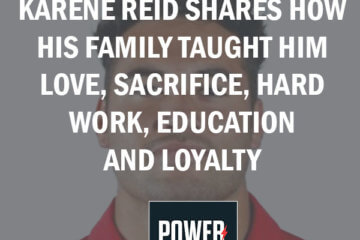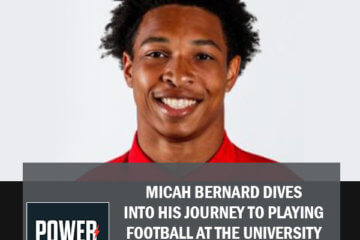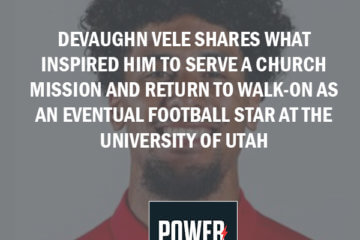Listen to the Podcast Here:
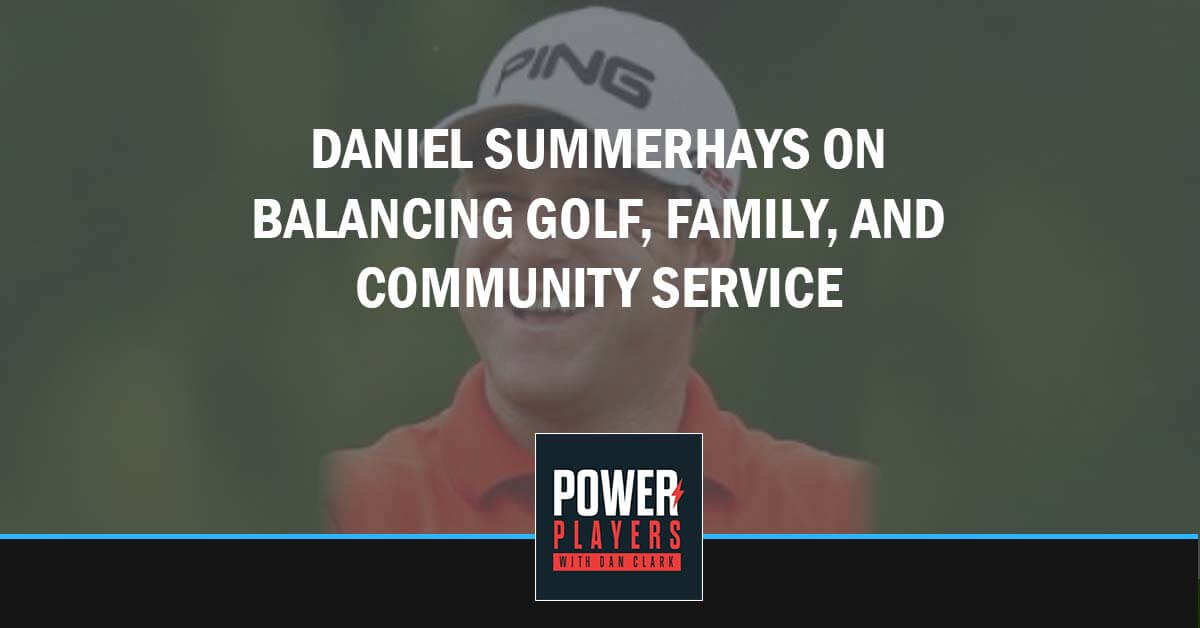
Balancing golf, family, and community can be challenging. But it can be done. Dan Clark’s guest today, Daniel Summerhays, shows us how he nails it! Daniel is one of the most successful PGA Tour Professional Golfers ever to come out of Utah! Join in the conversation as Daniel shares his life and climb to the top of his profession – giving us an inside glimpse of how to deal with the ups and downs. The number one rule to keep winning in life? Love yourself. You can’t truly succeed until you believe in yourself. Tune in!
—
Daniel Summerhays On Balancing Golf, Family, And Community Service
In this episode, Daniel Summerhays, PGA TOUR professional golfer, who is one of the most successful professional golfers ever to come out of the State of Utah, shares his life and climbs to the top of his profession. He will be giving us an inside glimpse of how to deal with the ups and downs of the PGA TOUR while balancing family life and community service.
—
Welcome to the show, Daniel. It is such an honor. I can’t wait to share your wisdom with my readers and the world. How are you?
I’m doing great, Dan. Thank you so much for having me on. That is one of my favorite intros I have ever had. I was trying to fight back a couple of the last, but I believe my ball was on a ball washer up. That one struck a good chord with me, and your new book is coming out this 2022. I have a few students who need to read that. I will be interested in that release.
Let’s cut right to the chase. Golf is an extraordinary sport. One of my clients, whom I wrote his keynote speech, Hank Haney, was Tiger Woods’s golf coach during his six most profitable years. He has given me so much insight into golf. One of the things Hank is famous for when we would go out and play golf together is he always says, “The ball never lies.”
I equate that to life. If you are going down the wrong path and making the wrong decisions, that is where you hit yourself. You are the ball, and the ball never lies. I want you to back up from a golfer’s perspective. Teach us about the mindset that takes you from a high school athlete to a collegiate champion to a pro, what they have in common, and what we all need to understand about the mindset of a champion.
We can always continue to refine our rules of life. The fun thing is the rules of golf are a lot of times rules of life. I’m now the head coach in high school boys golf debut. When we hit a shot, we live with the results in golf and, in the same way, in life. We create our own results, and I have developed alongside my brother our seven Summerhays golf rules.
The great thing about golf rules is they apply to life the rules for life. The number one most important rule is to love yourself. How do you talk to yourself? Are you your own best friend? You can’t truly succeed until you believe, love, and think the world of yourself. You can spread that love and passion outward.
Many times, the rules of golf are the rules of life.
We raised our four children with the belief that the only person you need to be better than is the person you were before. With self-love from a golfer’s perspective, I’m sure you are going to get in the next six rules. Do you compete against yourself or the golf course? Are you worried about the golfer up on the leaderboard when you hear the cheer of the crowd? Take us right there. Are you going to cover that in the other six rules of self-love like, “I’m not smart and good enough. I don’t have the distance of the tee?” Self-love, in my mind, has to be about you being the best version of yourself. Is that what you are teaching us?
That is part of rule 1 and rule 6. It runs together. They are all interrelated. I don’t know who the original quote is from, but I heard it watching an NBA game. One of my favorite announcers is Jeff Van Gundy. I love him. He said, “Comparison is the thief of joy.” It hit me a ton of bricks because, in golf, we are comparing, “What did you shoot? What did you make on that hole? What clubs do you play?” It is all this comparison, and they are hand in hand.
First, how do I love myself? How do I talk to myself? If I hit a bad shot, “You dummy. How could you have done that?” versus saying to yourself, “I tried my best there. I need to train that a little bit better.” That is the truth and that is still loving yourself without starting to put these poor subliminal messages into your mind and heart.
A good buddy of mine posted and he said, “My nine-year-old daughter was cut from her softball team.” He was worried about how she was going to react. He was trying to figure out what he would say to pacify her before he could even open his mouth. She looks up at her dad and says, “Dad, grab your mitt. We got work to do.”
You create these mantras to say versus, “I’m terrible. I suck. I’m no good. I’m not smart enough.” It is like, “Maybe I need a little more knowledge. Where can I go find more knowledge?” Loving yourself involves this curiosity, “I don’t have all the answers yet, but I will find them.” You have this inner love that you are like, “I have the skill to learn and grow.” That is the number one rule. How do you talk to yourself? What is going on in your brain? There are some people who fake and say the right thing, but they don’t believe it. You better start saying the right things even if you don’t believe it, but it will start to sink in. That is rule number one, love yourself.
Number two, never make excuses, “The wind started. The wind picked up. All the greens were too slow.” That can be, “I can’t believe that guy got lucky with that promotion. It should have been me.” Whatever the excuse is, we can control our own destiny and fate. When we make excuses, it is showing a lack of skillsets and deficiency in either knowledge or skill set that we have not developed yet. It is a self-defense mechanism to mask a weakness.

Golf And Family: The next shot is the most crucial shot.
Number three, body language says everything. How do you carry yourself? Ninety percent of communication is non-verbal. Even the words we speak depend on the tone and facial expression while we say those words. Body language says everything. My brother Boyd was good with me because we have all gone through cycles in our life where we have been better at carrying and talking to ourselves the right way.
He took a photo of me at the 2017 PGA Championship at Quail Hollow. It was one of my tougher moments. I was two weeks away from potentially losing my PGA TOUR status for the first time in six years. He has got a picture of me sitting on a bench, elbows on my knees and my head in my hands. He took a picture of it in a lovingly brotherly way to say, “You look defeated,” whether I was or not at that time. Maybe I was trying to catch my breath, refocus, meditate, or whatever it was, the look was, “You are defeated.”
If you make a double bogey and walk off with shoulders, slumped, head down and frown versus pick the ball out of the hole, roll your shoulders back, and chin up, the body language says everything. We have experiences in life, and we choose the reaction to that experience. There are no good or bad experiences. How we carry ourselves can change our attitude and relationship with that experience. That is rule number three. Body language says everything.
Number four is the next shot. It is the most important shot. It was not the one I hit two holes ago. It was not the push block fade I hit on the first tee, and it was not the par-3 over the water coming up in two holes that I’m worried about. I’m worried about the next shot right now, right here. That is a lesson for life. The only thing I can control is the circumstance that I’m in.
For me, that is a big deal. I have battled general anxiety disorder my whole life without knowing it. I have sleepless nights worrying about the future a lot. I have started to tap into a lot more mindfulness practice and meditation to stay in this present moment, to breathe, let thoughts come in, work out and not pass judgment on those thoughts. That has been an amazing thing for my personal life to say, “Fall asleep without having my brain go crazy at night.” I can’t worry about the par-3 over water that is coming up on number 17 when I’m on whole 12.
I relate to that so much. I got a hole at one-hit at about 300 yards dead straight. I hit this guy right in the back. He pulls up on the highway, comes, and finds me as he roams around. I have to regroup and get focused. I played at Pebble Beach with my caddie and I had to apologize. I’m like, “We have been out here so long. I bet you are tired.” He says, “I’m homesick.” I said, “That is not funny. This course was a lot tougher than I thought.” He goes, “Mr. Clark, with all due respect, you haven’t been on it for over two hours.” I’m like, “This is sick and sad. Keep going. I understand how you must regroup and focus on what you can control now. That’s brilliant.”
You make your own luck.
Number five is I make my own luck. One of my favorite movie series is Christopher Nolan’s Batman Trilogy, Batman Begins, The Dark Knight, and The Dark Knight Rises. Harvey Dent in The Dark Knight has a coin that has two heads on it, and he always says, “I don’t leave anything up to chance.” He flips the coin but always comes up head. In the movie, he says, “How could you leave something to chance? I make my own luck.” I do believe that we make our own luck.
There are very few times in life and in golf where there is bad luck. Usually, it was a result of our actions. If I hit it down the tree line on the right, catch a branch, and kick further into the trees, guess whose fault it is? That’s on me. I should not have hit it down the right side of the tree line. If I hit it in the bunker and it plugs, that is what should have happened. If I hit the green shorter and it stays stick short, that was on me. I needed to fly another yard further.
We make our own luck. I love the quote from Bobby Jones or Ben Hogan. He says, “The more I practice, the luckier I get. The more time and effort we put into something, the luckier we get because we get better at it.” There are few occasions where it is a flat-out bad break. If your balls are in the middle of the fairway and the seagull comes, picks up your ball, and drops it in the water hazard, that is the tough break, but those are very seldom. If we stepped back and looked at what actions did we take that produced that outcome, we will often find that finger pointing back at us.
The making of a champion in any part of our lives boils down to increasing our frequency of feedback in three ways. Factual feedback, we don’t assign any blame. Motivational feedback, we need that cheerleader like, “You can do it. You can come back no matter what your past has been. You have a spotless future,” and educational feedback, which is the correction.
I caddied for Billy Casper in the Irish Open way back in 1975. When I left Ireland and came back home, we connected and became fierce friends for all those years. He only saw a picture of me in my swing after I had hit the ball. He could tell me exactly where the ball went based on my body language and my skewed follow-through.
He needed to make a couple of corrections without even going out onto the tee box with me that I took to the course about a week later, and that was significant. What you are teaching us here is don’t be afraid of failure and making a mistake. Learn from it and make that adjustment so that you can do a better job next time. That is what you are saying. There is no wisdom in the second kick of a donkey.
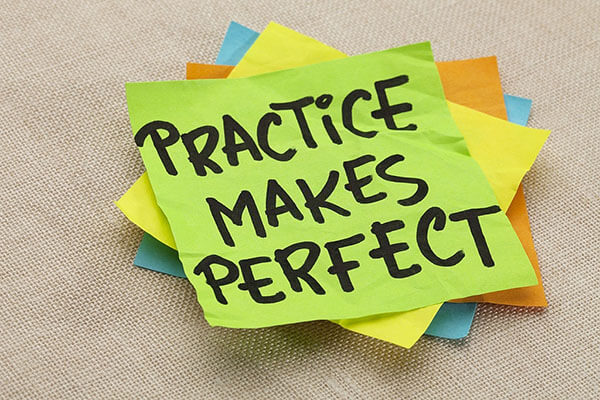
Golf And Family: Practice makes permanent and perfect practice makes perfect.
Another rule from what you are saying is either you win or learn. Losing should become a part of all of us. We should love to lose because it is an opportunity to learn and grow. I love those different types of feedback you are talking about, the informational, motivational and educational feedback. A lot of people say, “I got the putting yips, driver yips and chip yips.” A lot of times, I will tell them it is mechanical.
Billy saw your mechanics. He could see the mechanical flaws. There is one of my favorite stories that I tell about the mental game. Mike is a good friend and he went through a little bit of a rough patch over the last several years. He had a mental coach and the mental coach kept telling him, “You got to be more mentally tough. You are letting this stuff get to you. You are not down in your mind.” I’m thinking to myself, “You are talking to one of the most mentally tough guys who ever walked the planet right here. He needs some mechanical change to go with his mental fortitude.” I love the different feedbacks you are talking about.
In factual feedback, when you feel any blame, this is the fact and this is where your ball is plugged. Number two is motivation. You can get out of it. You can if you think you can. You have done it in the past, why can’t you do it now? Number three is educational, which is the correction. I love where you are separating the mindset from the mechanical. That is brilliant.
Number six is the comparison. It is the thief of joy. We compare based on where we were before. Am I better than I was before? Is my knowledge base greater than it was before? I had a kid try out this 2022 for the golf team and decided to try it out the year before. He didn’t make the team last 2021. He shot 115, and then 95 were his two scores. In 2022, he shot 80, 79. If you look at his progress, you will say, “That is pretty amazing.” You compare them to the senior who shot 69, 66, and you were like, “He blew out a lot by 25 shots.”
Should he feel lesser than because he got smoked bill in the trial? He could feel that if he was comparing. What I like to do with comparison is you are on your own path, and you focus on your progress, but you watch and learn from others. If you see someone says, “I love how you hit that bunker shot. Can you show me how you hit that bunker and that high draw right there?” That is okay. That is not comparing. That is curiosity, seeking wisdom and knowledge. There is that difference between comparing. The comparison will be like, “He can hit that high draw, but I can’t. I’m terrible.” That is where the comparison will steal our joy.
You brought back a memory from the Irish Open. We have Billy Casper, Bennie Crenshaw and Gary Player. They had some appearance fees involved. Bennie wins it, Billy takes second and Gary Player was in the water about half the day. After the practice round on Wednesday, Billy and Benny went to the practice green at the clubhouse in Portmarnock, Northside of Dublin.
We should love to lose because it’s an opportunity to learn and grow.
Billy is doing the bump and run with the 7-Iron and makes 7 out of 10 shots. I’m like, “Are you serious?” He plugs a ball in the upper lip of the sand trap. He takes his right hand, and both of them are right-handed. Billy takes his club and turns backward. They have a contest ten times trying to hit the ball with the backside of his wedge onto the green.
Bennie Crenshaw, during the tournament, has that exact same shot and everybody claps. He got about a 4 or 5 minutes standing ovation because he hits it with the backside of his wedge. It goes up on the green and goes like a foot from the hole. I get what you’re saying. You can learn from others without competing or comparing. That is so brilliant. Daniel, what is number seven?
Number seven is practice makes permanent. It does not make perfect. Whatever we do repeatedly will become permanent, whether it is exercise or nutrition. Whatever becomes our lifestyle will become permanent. I tell my guys, “Perfect practice makes permanent and perfect.” If I’m coming over the top hitting slices and do that every time, I’m going to continue to ingrain that into my muscle memory, and it is going to be difficult to change.
If I continually stay up late at night, scrolling social media on my phone, that is going to ingrain and become a pattern or a habit that is not in our best interest. It is going to become difficult to break. There are a lot of different life things that we do repeatedly that will become permanent, whether it is good or not. Practice makes permanent and perfect practice makes perfect.
As we wind down her time as a power player, you have talked about your passion for golf because it is the way that you understand life. You keep it in the fairway. If you get in the rough, hit it out and don’t make excuses. I love all these seven powerful Summerhays principles of success. The pursuit of your passion, and now you are coaching high school. You have wound down your career, but you are still playing in some tournament. You are on your way to Idaho to play in a tournament.
The last question I need to ask you is even though you are young and still at the top of your game, not just in golf, but in life, family and spirituality. If you add one hour to live, what is your message to the world? What is your last lecture? What do you want to say to the world so 50 years from now when they say, “That Daniel Summerhays was a phenomenal golfer, but?”

Golf And Family: Connect because we need each other.
He connected with people. I’m trying to walk the walk now. Being on the PGA TOUR and playing professional golf for so long, I got to interact with a lot of people but not on a deep level because they were short touchpoints with people. That is what I was lacking in my professional life in golf. We are gypsies. We would travel all around the country and around the world in a different city every week. It was tough to develop deep, meaningful relationships. That is what I am gear shifting. That is my pivot in life now.
I’m still young and I want to connect with people. I want to have those relationships where you have changed someone’s heart and mind because of an in-depth discussion that you have had. You have learned about the scary things in people’s lives and the real issues that they are dealing with, whether it is financial, emotional or spiritual.
My game plan is gameplay and message. If I had one more hour, connect with someone now on a very deep level. It is going to hurt sometimes. It is going to take time, pull and tug at your heartstrings. You are going to have to apologize to the people because you have said something wrong in passing or in a heated moment, but they are all these human connections. We are social connective creatures.
My message will be to connect with each other. Do not separate and distance from each other. We need each other, and that is what I’m doing. That is why I feel I have a call to these youth now. We are getting wrapped up in a very media, technologically-driven world, and they need to learn that a phone call is better than a text message, and face-to-face conversation is better than Snapchat or Insta post. In teaching high school and coaching the golf team, I can do that at a community level, and hopefully, the wave starts to spread.
My guest has been Daniel Summerhays. It has been great to connect with you, Daniel. I love, honor and respect you. If you ever need a cheap caddie sometimes to keep you focused on the game, you could pay me big bucks to distract the other golfers in your foursome. I’m good at that.
Anybody who has caddied in the Irish Open, I will take.
Here we have it, ladies and gentlemen, the seven life lessons, rules of order, the Summerhays wisdom of the ages that will help you and also become a power player. When you finally decide to be a power player, as Daniel Summerhays eloquently explained, the power play begins in you. Until next time. Qualify and quantify your takeaway and go make a power play. Keep your head down and follow through high. Thanks, Daniel. God bless and good luck in your tournament. Let’s connect offline. You are one of my heroes. I appreciate you so much.
Thanks so much, Dan. I feel it and appreciate it. Thank you.
Have a great day, Daniel.
